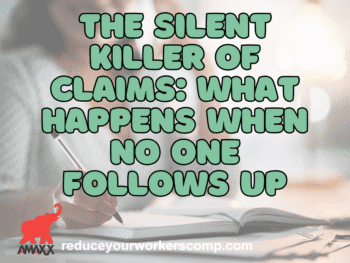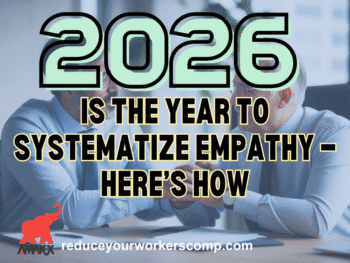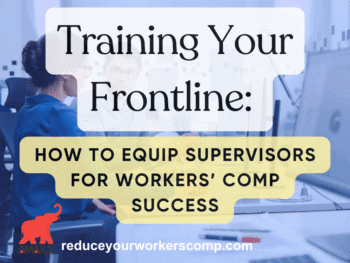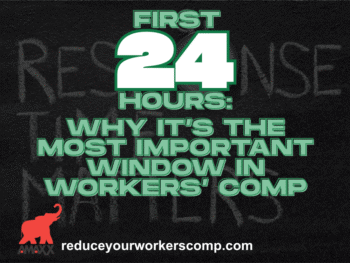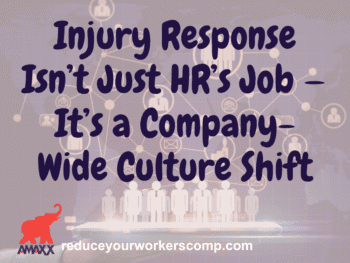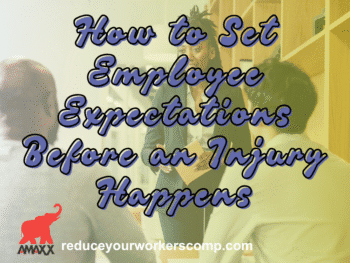
Are you A Great Communicator?
President Ronald Reagan was sometimes referred to as the “Great Communicator.” Using his skill as an actor, he took his political ambitions to the next level by becoming governor of California and later serving two terms as President of the United States. In an interview following the conclusion of his presidency, Reagan reaffirmed his ability to connect with the average American in leading to electoral success. He also noted he constantly honed his communication skills through a series of refinement:
- Analyze what is going through your mind when speaking with another person. Ask yourself if you are genuinely focused on what they are saying;
Click Link to Access Free PDF Download
“9-Element Blueprint To Create Your Workers’ Comp Employee Brochure”
- Analyze how you formulate a response. A successful step is listening to what is being said and not thinking of a response until after the person has spoken.
Ineffective communication is often driven by jumping to conclusions and talking over the other person. The best way to become an effective communicator is to LISTEN! Become that great communicator by first taking the time to listen to the other person.
Becoming a Better Listener!
According to best-selling author Stephen Covey, a highly effective person’s habit is listening before speaking. This includes looking at what they are saying from their point of view. This allows the listener to become empathic and better understand their interests. Understanding a person’s true interests will help you develop better solutions when attempting to resolve a problem.
In workers’ compensation, an effective claim handler must listen to what a witness or injured employee is trying to say. This will allow for a more compelling claim investigation and draw out critical details to a story.
- Never ignore what someone is saying when they speak. Not paying attention tells others you are not interested.
- Never pretend to listen. Be aware of common signals such as excessive nodding or verbally agreeing with what is being said.
- Never be selective in receiving information. Applying these filters gives an impression of not caring to hear the full story.
Always be empathetic even if what is being said is incredulous. Now is the time to become better at communicating by listening.
Find the Right Time to Talk
The verbal aspects of effective communication do not include only the content of what is spoken. Never rush a response. Feel free to take a deep breath, process what was said, and respond in due course. Be aware that speaking too soon can raise the temperature of a conversation, especially in heated workers’ compensation claims.
- Allow for the other person to be fully heard.
- Ask clarifying questions at the appropriate times.
- Check the tone of your voice. If there is background noise, find a location where normal conversational tones of voice can be used.
- Let the other person know if you need a moment to process what is being said and respond accordingly.
Time limits can also be set on conversations. Conversations that drag on tend to have diminishing returns.
Conclusions
All interested stakeholders in the workers’ compensation claim process can benefit from being effective communicators. This requires all parties to practice their listening skills and allow the other person to share their ideas and comments in a non-judgmental manner. It also requires one to find the right time to talk that checks the tone of one’s voice to ensure it is not argumentative. Mastering practical communication skills can improve the claim process and lead to better results.

Contact: mstack@reduceyourworkerscomp.com.
Workers’ Comp Roundup Blog: https://blog.reduceyourworkerscomp.com/
©2022 Amaxx LLC. All rights reserved under International Copyright Law.
Do not use this information without independent verification. All state laws vary. You should consult with your insurance broker, attorney, or qualified professional.

